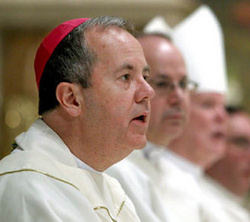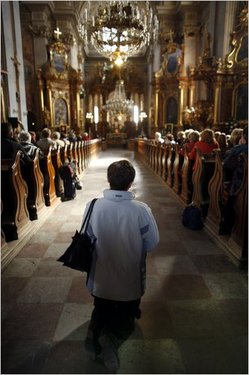The paper’s ombudsman, or “public editor,” Clark Hoyt offered some thoughts this Sunday about how the paper had covered the scandals in the Church. Perhaps unsurprisingly, the paper came out very well.
After dissecting a couple key stories — including the notorious coverage of Fr. Lawrence Murphy — Hoyt concludes:
Some readers say The Times is anti-Catholic. They wonder why it isn’t giving equal effort to sex abuse in the public schools, or in other religions. And Levada and others argue that Benedict improved the Vatican’s response to such cases, streamlining the procedures for hearing them and apologizing to victims.
But it would be irresponsible to ignore the continuing revelations. A day after the first article about Murphy, The Times published another front-page article that said Benedict, while archbishop in Munich, led a meeting approving the transfer of a pedophile priest and was kept informed about the case. The priest was later convicted of molesting boys in another parish. The paper’s critics have been mostly silent about this report.
Like it or not, there are circumstances that have justifiably driven this story for years, including a well-documented pattern of denial and cover-up in an institution with billions of followers. Painful though it may be, the paper has an obligation to follow the story where it leads, even to the pope’s door.
I’d encourage you to read the whole thing, to understand where he’s coming from.

